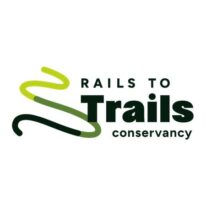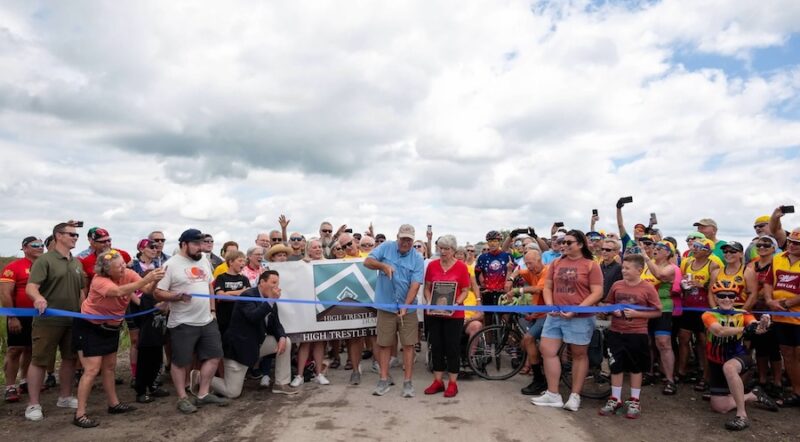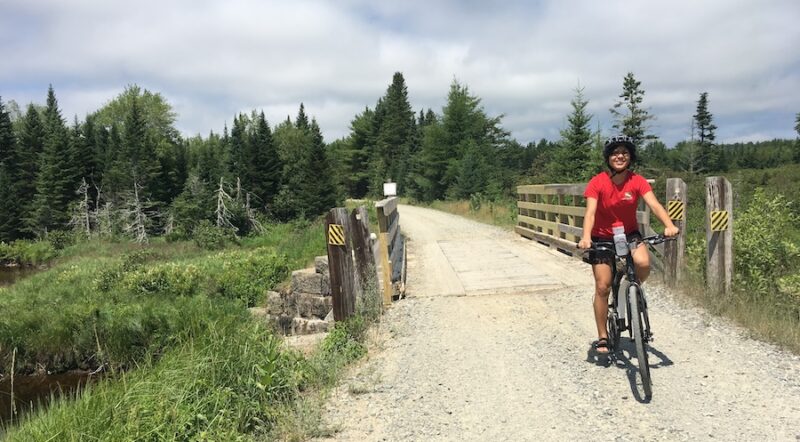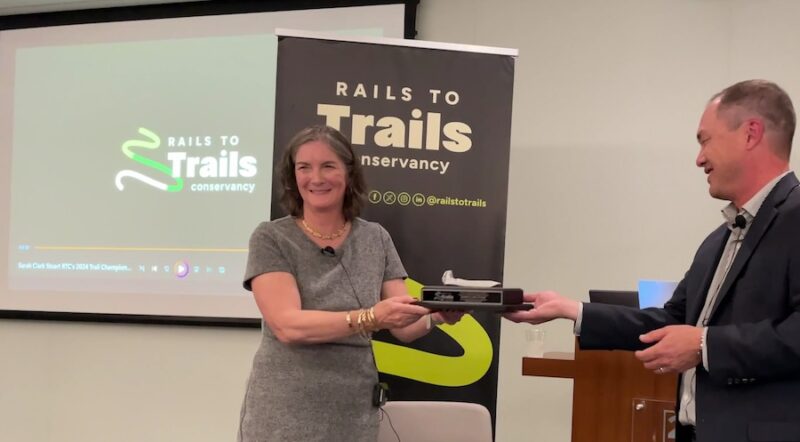Advocates Request Preliminary Injunction to Postpone Construction of Exit 4A Access Road in Derry Without Rail-Trail Underpass
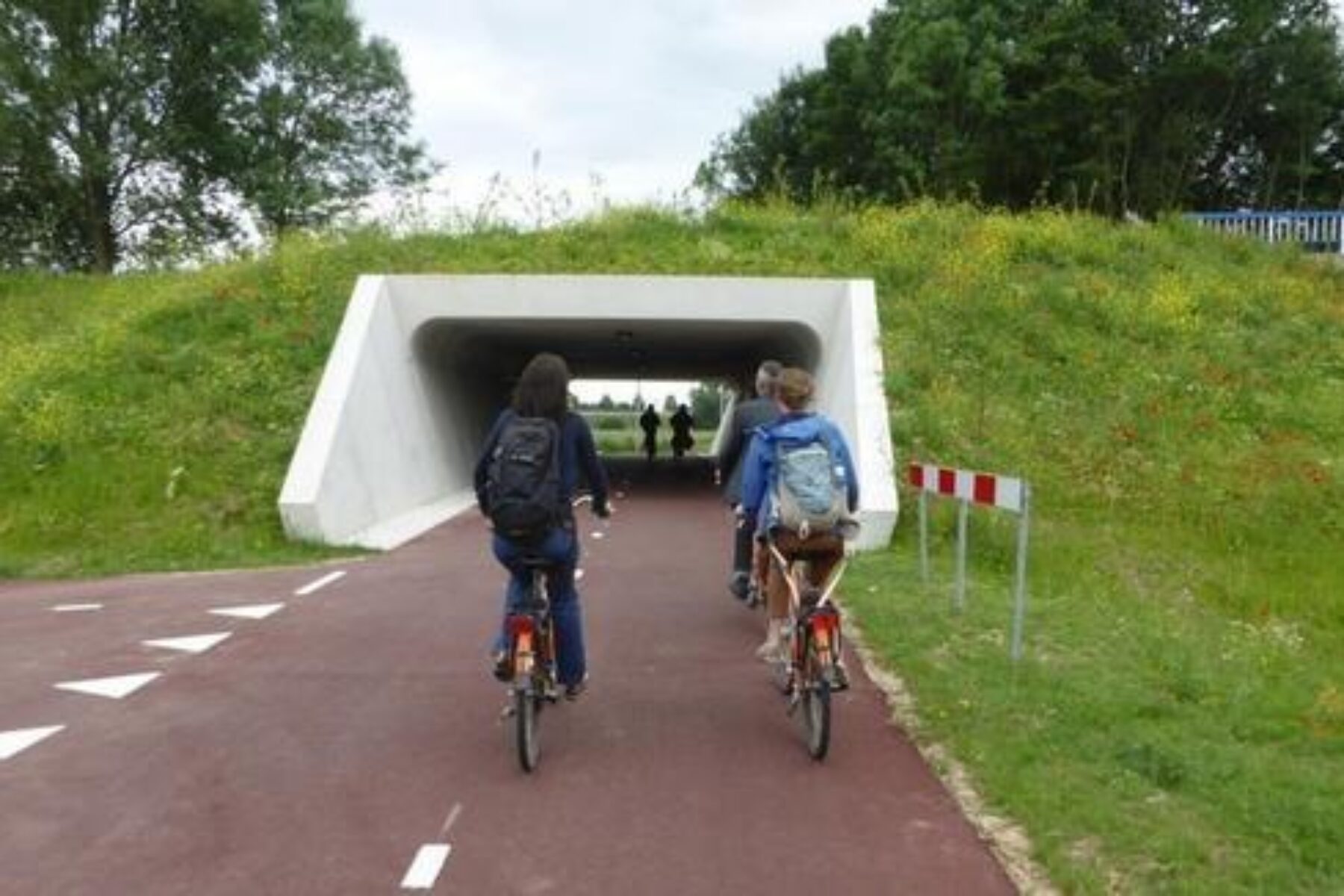
For Immediate Release: Oct. 9, 2024
Committee to Save the Derry Rail Trail Tunnel
Contact: Bob Spiegelman, 603.490.0012, robertspiegelman@comcast.net
Rails to Trails Conservancy
Contact: Brandi Horton, 202.974.5155, brandi@railstotrails.org
Advocates Request Preliminary Injunction to Postpone Construction of Exit 4A Access Road in Derry Without Rail-Trail Underpass
Request for relief follows August lawsuit against the New Hampshire Department of Transportation and the Federal Highway Administration citing violation of federal law that will cause irreparable harm to historic rail corridor.
Concord, New Hampshire—The Committee to Save the Derry Rail Trail Tunnel and Rails to Trails Conservancy have filed a request for a preliminary injunction in the United States District Court in Concord, New Hampshire, to postpone further development of Phase 2 of the Exit 4A I-93 expansion in Derry until the court rules on the legality of the removal of the previously approved rail-trail underpass.
In August, advocates sued the New Hampshire Department of Transportation (NHDOT) and the Federal Highway Administration’s (FHWA) New Hampshire Division on the premise that these entities failed to comply with federal law protecting the Manchester & Lawrence Railroad Historic District and the Derry Rail Trail. The complaint centers on a design change, proposed by NHDOT and approved by FHWA in 2024, that removes a previously planned underpass slated to protect the historic railroad right-of-way and planned extension of the Derry Rail Trail from a six-lane exit road. The new design replaces the underpass with two unsafe alternatives: a steep slope up 10 feet of landfill to a crosswalk across six lanes of traffic, and a circuitous, steeply sloped route that abandons the historic railroad corridor.
According to the filing, advocates are seeking a preliminary injunction to preserve the current status of the corridor and to prevent NHDOT and FHWA from moving forward with design plans that are in violation of federal law protecting historic resources. The agencies are currently in the process of soliciting and evaluating construction bids, with contract decisions anticipated later in October.
“There is reasonable concern that without an injunction, NHDOT and FHWA will simply move forward with their design plans that will render the historic rail corridor unrecognizable,” said Alex Bernhard, a local resident, lawyer and member of the Committee to Save the Derry Rail Trail Tunnel. “Any forward progress on their design plans will cause irreparable harm, which is at the heart of this case.”
NHDOT originally proposed including an underpass in the Project to allow for the planned expansion of the Derry Rail Trail through the Manchester & Lawrence Railroad Historic District. This decision prioritized minimizing harm to the historic railroad corridor by providing a tunnel for the Derry Rail Trail along the corridor’s original alignment. This design also would have provided significant safety benefits to the many thousands of people who are expected to use the Derry Rail Trail. NHDOT’s documentation supporting the original design, approved in 2020 (2020 FEIS, Chapter 7, page 7-18), stated that the Project “would be further enhanced by the construction of a suitably designed underpass that is complementary to the historic railroad corridor. With incorporation of these measures, the Project would preserve and enhance the historic features and values of the rail corridor, resulting in a net benefit use.”
Despite these benefits, an alternate design, which unnecessarily harms a historic segment of the railroad corridor in violation of federal law, was introduced in 2022 and approved in 2024. Only one public meeting was held to review the alternate design, where public opposition was extensive, based on the damage to the historic corridor and because of the safety concerns it introduces to the community. The alternate design includes a circuitous, hairpin “spaghetti route” featuring steep grades of nearly 5%, and a route requiring users to climb a 10-foot embankment to cross the new six-lane Folsom Road at a crosswalk. This design creates unnecessary hazards for the many thousands of bicyclists and pedestrians expected to use the trail and the people traveling in 40,000 vehicles projected to use the road daily. Further, the pedestrian-walk phase of the crossing signal planned for these six lanes is unprotected from turning vehicles and does not provide sufficient time for older individuals and people with disabilities to cross.
The suit alleges that, by approving this new design approach, FHWA has violated historic preservation protections provided by federal law—specifically, Section 4(f), which forbids FHWA from approving transportation projects that will damage parks or historic sites, unless there are no prudent and feasible alternatives that would avoid the historic site and the agency has undertaken all possible planning to minimize harm to the site. The suit alleges that the original 2020 design plan demonstrates that there exists a reasonable alternative that would better protect the historic rail corridor, which advocates say will also improve the safety of the future rail-trail connection and create better trail system linkages.
The Committee to Save the Derry Rail Trail Tunnel is a New Hampshire-based not-for-profit organization comprised of local advocates who are concerned about the safety of rail-trail users and the preservation of historic railroad corridors.
Rails to Trails Conservancy is the nation’s largest trails advocacy organization—with a grassroots community more than 1 million strong—dedicated to building a nation connected by trails, reimagining public and historic spaces to create safe ways for everyone to walk, bike and be active outdoors.
The Committee and RTC are represented in the lawsuit by WilmerHale, an international law firm.
Visual Representations of Preferred and New Designs
Preferred Design
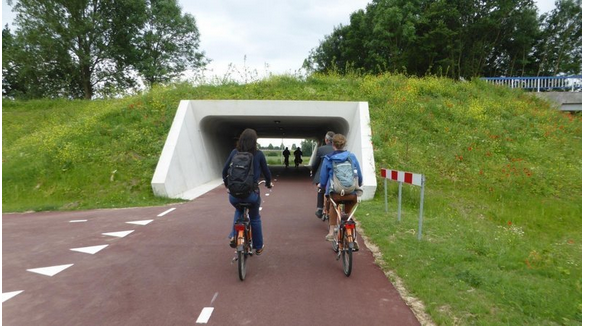
New Design
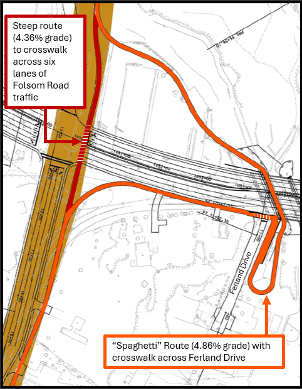

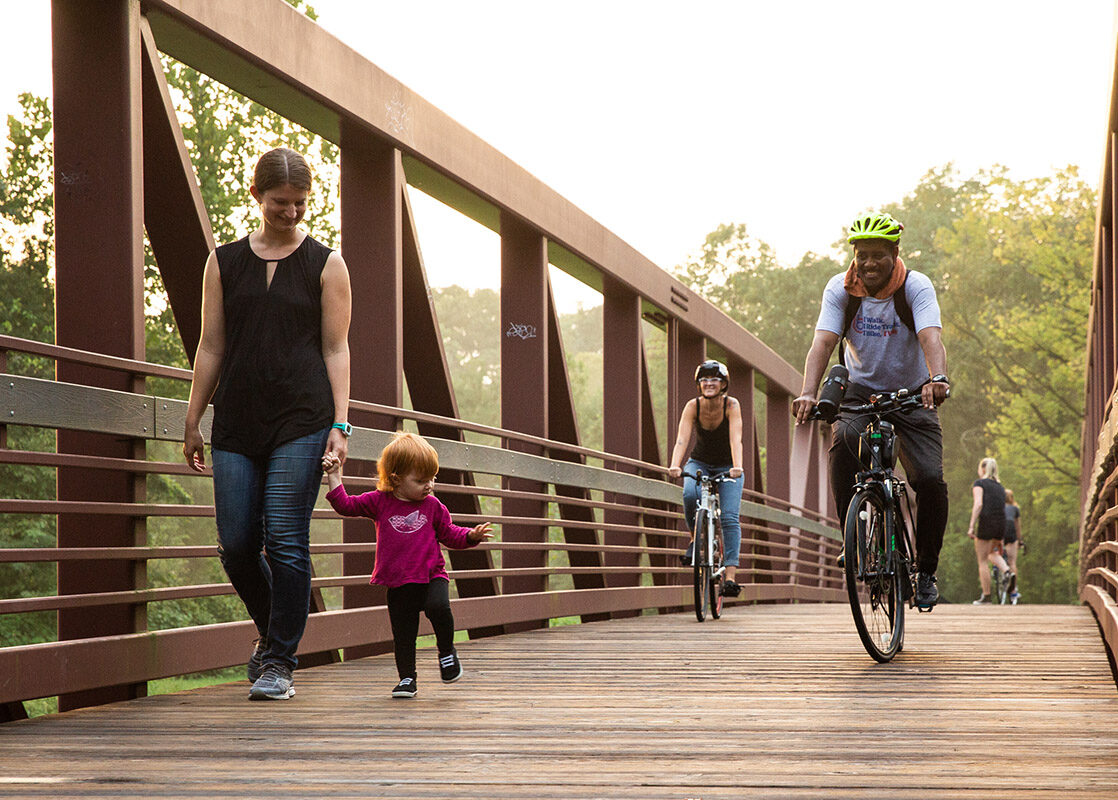
Donate
Everyone deserves access to safe ways to walk, bike, and be active outdoors.
